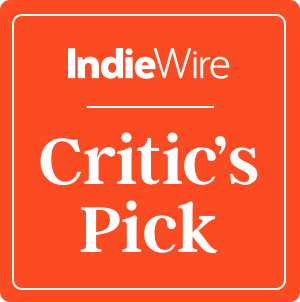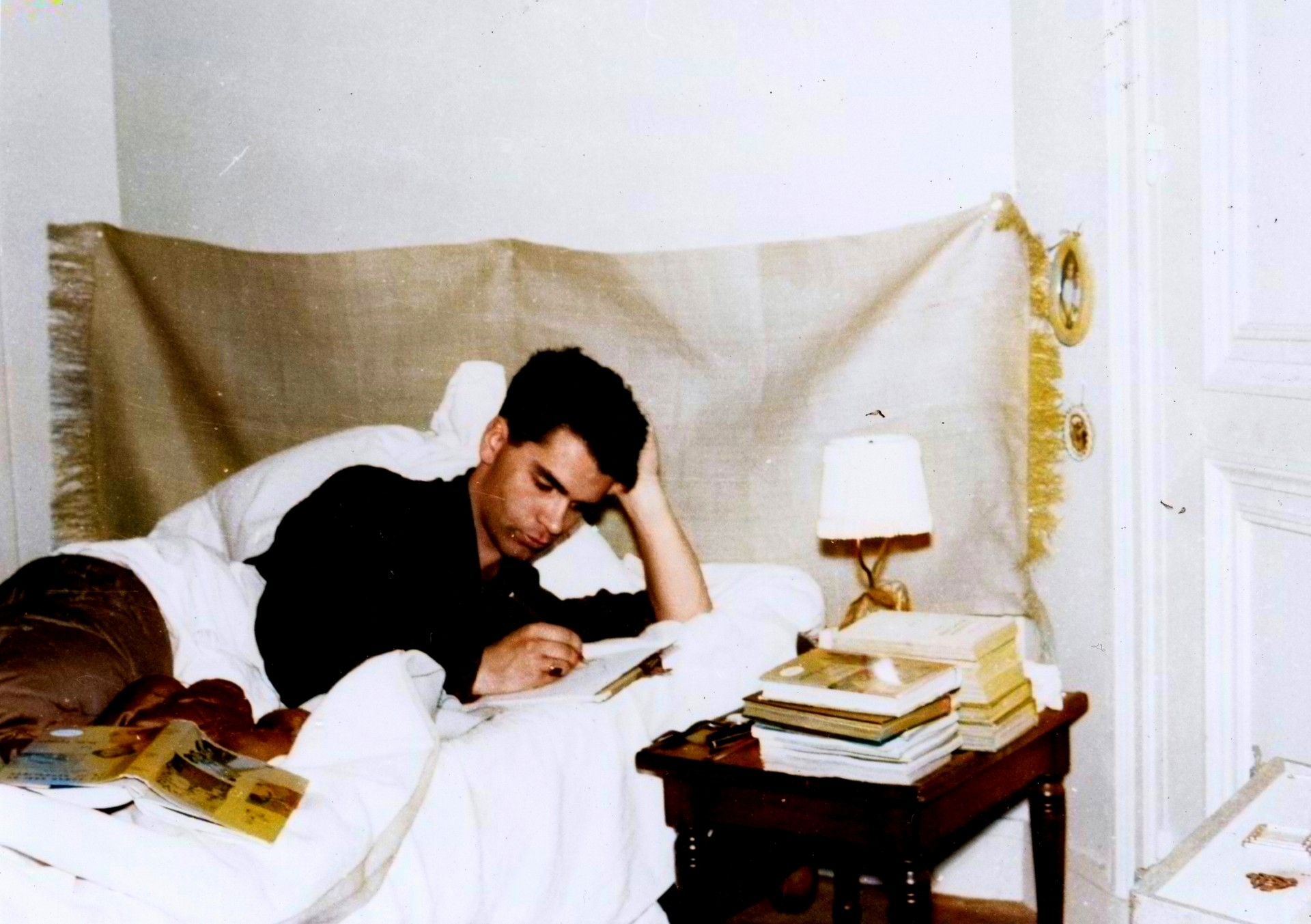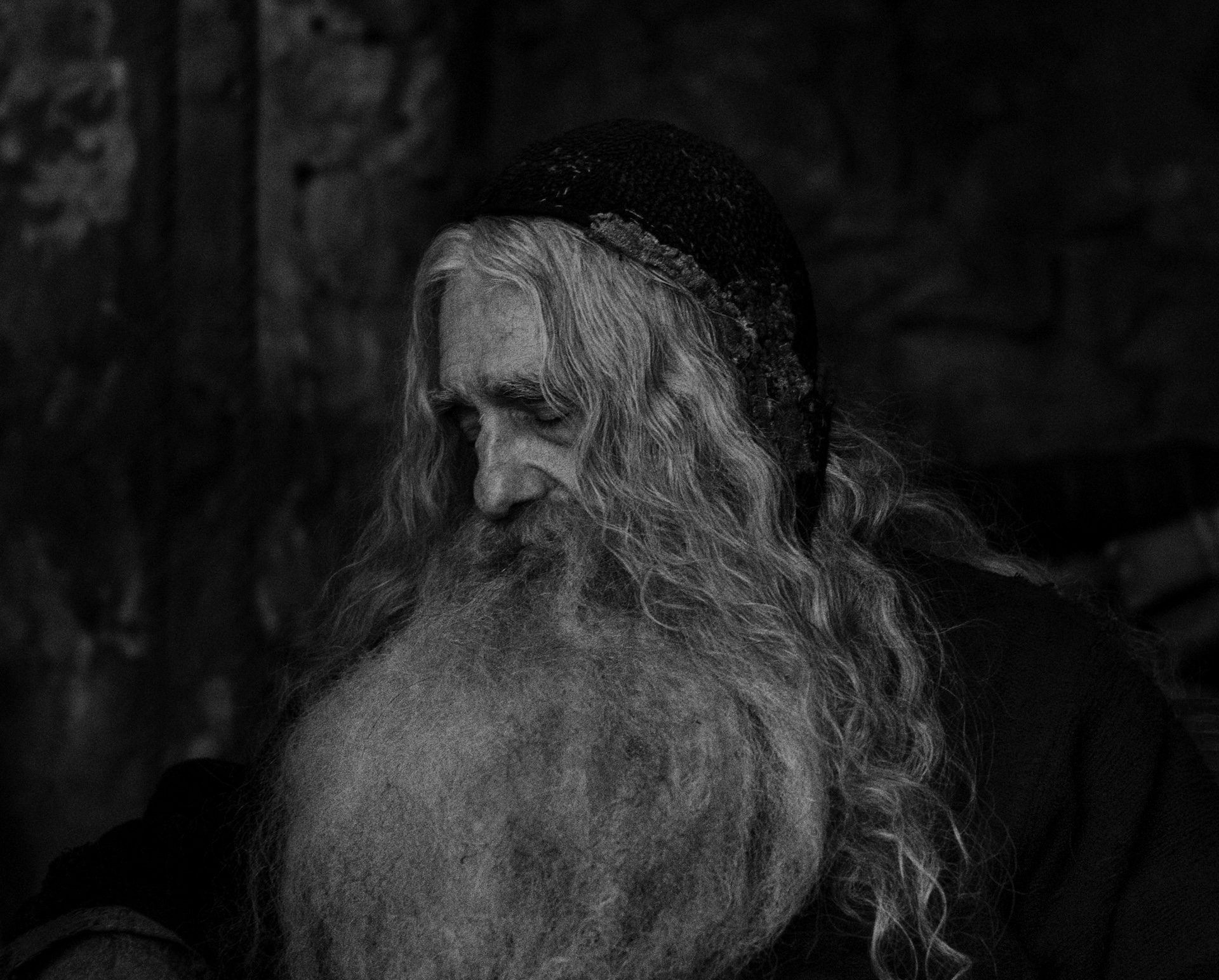
There’s an ecstatic eruption of a quote from Jonas Mekas that I’ve always remembered. It comes from a documentary about avant garde cinema whose title I’ve long since forgotten. “I’m not interested in documentary. I’m interested in poetry!” he shouted.
Well, Mekas would likely have loved “Honeyland” co-director Tamara Kotevska‘s achingly beautiful “The Tale of Silyan,” because it is an excellent documentary that also happens to be a ravishing work of poetry.
For this new film, Kotevska leaned into two themes she says are key to her work: migration and environmental change. She found in her subject Nikola, a near-elderly man (certainly at retirement age or very close to it), and his family, a personification of both topics. In their home country of North Macedonia, government policy has allowed for the price of the crops Nikola and his family farm from soil they’ve tilled for generations to go ever lower — to the point that farming is not a sustainable industry any longer. Kotevska turns her camera on agonizing scenes of Nikola and his family all but abandoning their potatoes, along with watermelon and other crops, and leaving them to rot because selling them makes no sense. Suddenly, an entire livelihood, and with it a way of life, has ended. It’s the height of drama, but Kotevska is more interested in quiet observation, elegant compositions, and subtle connections.
Now Macedonian farms are being bought at ever lower prices, many becoming landfills. Nikola’s children leave the country to find work in Germany — this new rural-to-urban migration encourages emigration outright. And Kotevska captures the moment some months later on a FaceTime call when Nikola’s children ask for his wife, Jana, to come join them, so that she can take care of their children while they work. Daycare expenses had basically eaten up all their wages.
And when she leaves, Nikola is all alone.
It’s a portrait of life where people’s fate is attached to the whim of market trends and even more obscure forces — thus, a portrait of us all. The “invisible hand” might as well be an Olympian deity or something out of a fairy tale. And so, Kotevska, weaves this footage she’s shot into narration retelling an actual Macedonian fable that dates to the 1600s or even earlier: “The Tale of Silyan,” which recounts how a farmer cursed his son who wanted to journey abroad and turned him into a stork. Of course, as a stork he’d naturally migrate from place to place but never find true acceptance among other storks — and never being recognized as a human again.
A divided soul. That very concept speaks to so much of life in 2025, whether in North Macedonia or almost anywhere else. You have to become something else, move somewhere else, constantly reinvent yourself just in order to survive, despite being endlessly awash in platitudes about “being true to yourself.” In the case of Kotevska’s film, that means Nikola is now alone. He takes a job tending a landfill, and that’s where he sees flocks of storks picking through the refuse to find scraps of food — the way they once might have pecked for grubs in farmland like Silvan’s.
For her part, Kotevska has said she sees this as the stork equivalent of humans eating ever more fast food in an economy where unhealthy food is the only cheap food. In reverse, it’s not lost on this viewer how the displacement of so many humans in this time of global disruption is humanity’s own version of being subject to the migratory patterns of storks and other nomadic animals. Not for nothing, Kotevska’s last feature was “The Walk,” about displaced Syrian refugees — she also helped buy a home for the protagonist of “Honeyland.”
Nikola, now living alone, sees a wounded stork, neglected by the others in the landfill. He takes him in, and nurses him back to health and develops a deep bond with him — just like the coda of the fable itself, where the elderly father ultimately takes in the stork who was his son. Kotevska has an uncanny ability to know just where to place her camera, and is as comfortable with intimate closeups of Nikola stroking the stork or on his phone talking to his distant family as she is with wide shots of the landscapes. There’s one painterly composition of Nikola driving his tractor in the background of the sign he’s posted on his land saying it’s for sale, an overcast sky hanging overhead, that should be hanging on a museum wall.
“The Tale of Silyan” is the work of a filmmaker capable of shattering categories and inventing new forms. Billed as a docu-fable, it blends non-fiction with the elements of a fairy tale in an extremely sophisticated way for a filmmaker still in her early thirties. It’d be worth knowing how much of the fable construct was planned from the beginning and how much was reverse engineered afterward, and one does find their thoughts drifting a bit while watching it to how the film was created as much as pondering its subjects.
Kotevska’s now in post-production on her debut fiction film, “Man vs. Flock.” If that can in any way blend her astute observation of the macro forces shaping life today with the poetic sensibility so self-evident in “Honeyland” and “The Tale of Silyan,” it should be major. This is a filmmaker capable of glimpsing both an instant — and the eternal.
Grade: A-
“The Tale of Silyan” premiered at the 2025 Venice Film Festival. It is currently seeking U.S. distribution.
Want to stay up to date on IndieWire’s film reviews and critical thoughts? Subscribe here to our newly launched newsletter, In Review by David Ehrlich, in which our Chief Film Critic and Head Reviews Editor rounds up the best new reviews and streaming picks along with some exclusive musings — all only available to subscribers.



